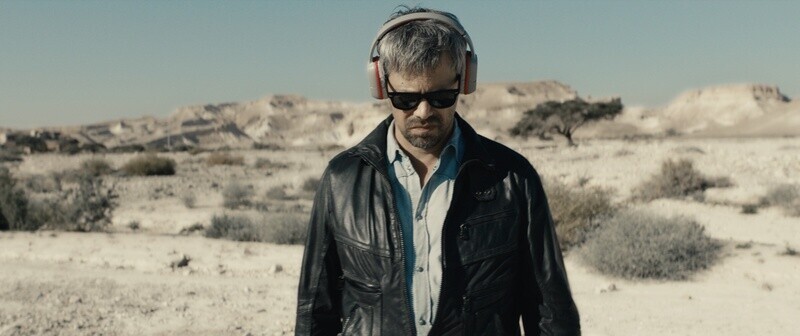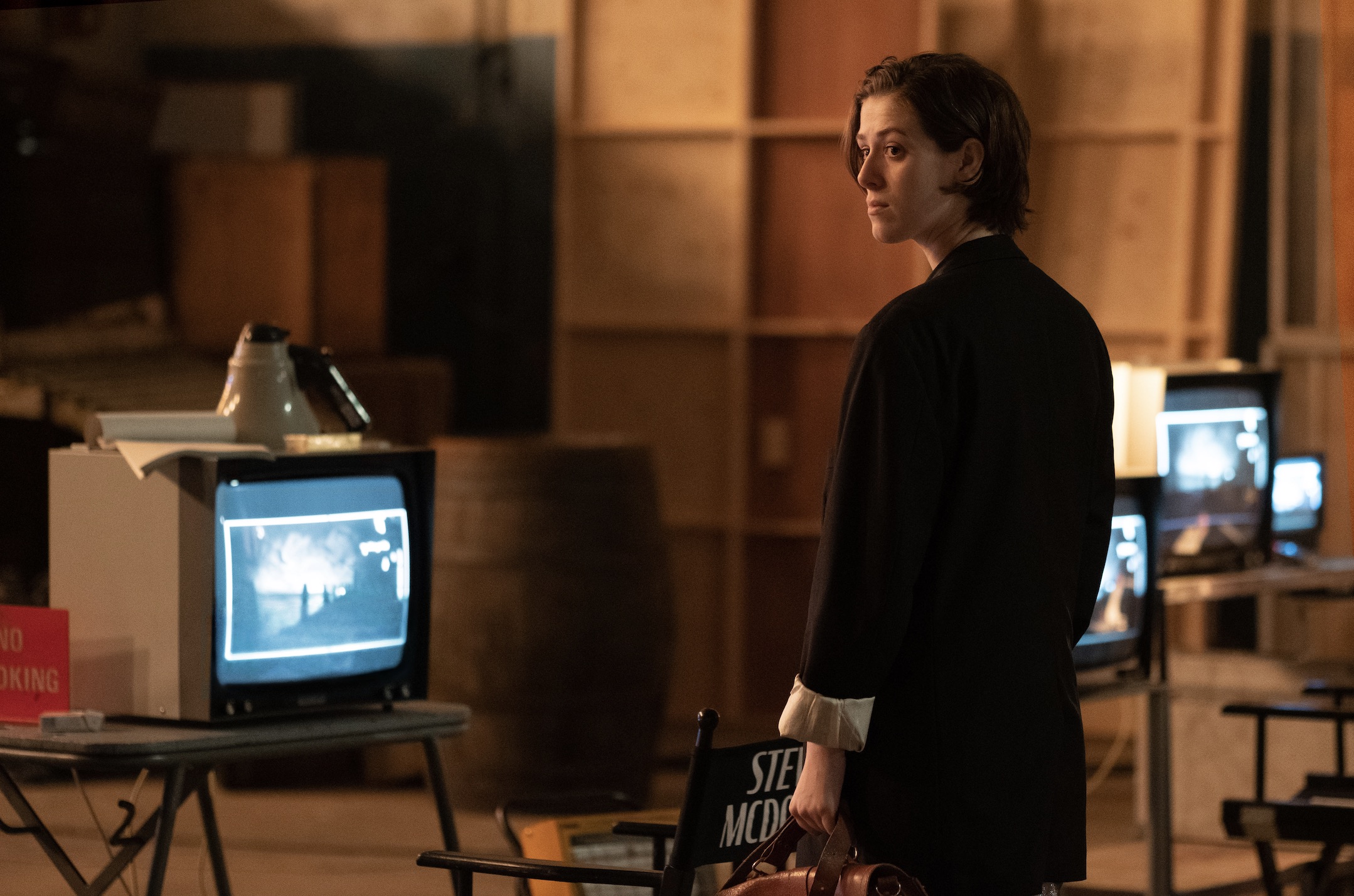Here’s an experiment: Try watching “The Souvenir Part II” without seeing the first part. “Maybe some of you didn’t see part one—it probably doesn’t matter, I don’t know,” the filmmaker, Joanna Hogg, told the audience at Directors’ Fortnight after the screening this morning. I’d be curious to hear how “Part II” plays completely fresh. Personally, though, I think that’s ill-advised. “The Souvenir Part II” is in effect the second half of a single four-hour movie. It picks up right where the first one left off, and it is so reliant on foreknowledge of the events of the critically lauded 2019 original that going in cold would be like wandering in after an intermission.
But that’s not necessarily a criticism, and the two halves echo each other in productive ways. Julie (Honor Swinton Byrne), the aspiring filmmaker of the first “Souvenir,” is now pondering the fallout of her relationship with Anthony, who remains in many respects an enigma. Is it even likely that he worked for the Foreign Office, as he claimed? In addition to therapy, Julie the film student comes to terms with having been in a suffocating relationship by, well, making a movie about it. A movie very much like—and, indeed, ultimately titled—”The Souvenir.”
Julie’s desire to re-create precise moments in her film—to make sure that the set captures the correct perspective, time, and lighting of real events—drives her actors and her director of photography nuts. Her film school advisers consider her script to be of less than professional quality and threaten to withdraw financial support. (Julie has to hit up her mother—played, once again, by Byrne’s mom, Tilda Swinton—for 10,000 pounds.) She’s not the only one shooting a movie. The scene-stealing Patrick (Richard Ayoade) has his shot at making the great British screen musical, but whether he’ll have the confidence to see his personal vision through is an open question. Julie’s commitment is never really in doubt, regardless of how many naysayers she needs to tune out at every stage.
So “The Souvenir Part II” is at once a continuation of “The Souvenir” and a kind of victory lap for it, and the self-regarding aspect—fundamentally, this a movie in which Joanna Hogg congratulates an alter ego named Julie Harte for achieving emotional and cinematic breakthroughs—is a bit much. Still, “The Souvenir Part II” has a meta-movie component that distinguishes it from its predecessor. The aspect ratio shifts to show us films within films. The principal appearance of Anthony (Tom Burke), who in “The Souvenir” told Julie that he was a fan of Michael Powell and Emeric Pressburger, occurs in a fantasy sequence that pays homage to the ballet-performance centerpiece of Powell and Pressburger’s “The Red Shoes.”
In contrast to Hogg, the filmmaker Kogonada is unlikely ever to make a sequel to “Columbus,” his 2017 debut feature. Part of the originality of that film derived from its unusual location: Columbus, Indiana, a small city that became an oasis of modernist architecture. The setting could be reused, but in any practical sense, “Columbus” was a one-off, an experiment that can’t be replicated.
And to his credit, Kogonada is unafraid to go far in another direction with his second feature, “After Yang,” which is science fiction. Certain shots are clearly the work of the same filmmaker, and his characters again find themselves pondering philosophical questions about the nature of time, say, and what distinguishes somethingness from nothingness. But it’s a much more narrative-driven film.
Colin Farrell and Jodie Turner-Smith play Jake and Kyra, the parents of a girl named Mika (Malea Emma Tjandrawidjaja). When they adopted her, to keep her in touch with her Chinese heritage, they purchased what the movie calls a “techno sapien”: an artificial human named Yang (Justin H. Min), whom they raised as Mika’s older brother. But now Yang has fritzed out, and it seems repairs aren’t possible. He’ll start to decompose soon if he isn’t fixed. (Evidently, these techno sapiens are something like the original Terminators—machines surrounded by living tissue.)

But attempts to revive Yang raise questions about his true nature. Was he spying on the family? Which memories did his circuitry deem worthy of preserving? Did he have emotional capacities and secrets that the rest of the family never knew about?
Rave reviews seem to be proliferating for “After Yang,” which premiered tonight in Un Certain Regard. But I’ll confess, as someone who was disarmed and fascinated by “Columbus,” to finding the new movie underwhelming. Kogonada uses a lot of showy formal strategies to disguise familiar elements of the central premise. He keeps the camera in long shot, shifts aspect ratios to differentiate perspectives, and finds framings that emphasize the cluttered sets—which in the film’s future setting probably qualify as retro-modernist, and certainly look like callbacks to the scenery in Columbus, Indiana. (The wonderful production design is by Alexandra Schaller.) Theme music by Ryuichi Sakamoto is soothing without being too syrupy.
All the same, on first viewing, I’m not sure the substance of “After Yang,” based on a short story by Alexander Weinstein, pushes it out of familiar A.I.-movie territory, or mitigates the mawkishness in its premise or justifies a slow pace that verges on the mannered. There’s an intriguing suggestion that Yang, a cyborg programmed to communicate a knowledge of China to humans but not Chinese (or human) in any literal way, spent his life engaged in a form of cultural assimilation. But the final revelations don’t do much to illuminate that idea. I’m open to the possibility that I may have missed something.
“After Yang” was hardly the most disappointing highly anticipated film of my day. That dubious honor goes to “Ahed’s Knee,” which represents the Israeli director Nadav Lapid’s first time in the Cannes competition, and his first feature since he won the top prize at the Berlin Film Festival in 2019 for “Synonyms.” Lapid’s last three features—”Policeman,” “The Kindergarten Teacher” (which played here in the parallel festival Critics’ Week), “Synonyms”—raised ambiguous questions about authority, responsibility, and identity in Israeli society and never settled for easy answers. With “Ahed’s Knee,” by contrast, I lost sense of any organizing principle early on. The film seems to have been constructed as a a vehicle for Lapid to vent his anger about this and that. (At a key moment, he actually has his alter-ego protagonist rant in close-up.) He also interpolates occasional dance sequences and other formal gambits that might as well have come from an unrelated set of idea books.

The movie begins with a disjunctive, Godardian prologue involving an audition of actresses to play Ahed Tamimi, a teenager who became a polarizing figure in the Israeli-Palestinian conflict after she slapped an Israeli soldier. The casting is part of a project that Y. (Avshalom Pollak), a Lapid-like director, is working on. He spends most of the rest of the movie in Israel’s Arava desert region, where he is scheduled to show a film to a small audience.
The use of a filmmaker protagonist is often a red flag. Is it a sign of creative block? Not exactly, in this case, but same difference: According to the press notes, Lapid himself was invited to the Arava region to screen “The Kindergarten Teacher” at a library, but was disturbed when a representative from the Ministry of Culture wanted him to sign a form that required him to censor his remarks. “Ahed’s Knee” thus builds to a confrontation between Y. and a Ministry of Culture representative (Nur Fibak) who’s been showing him around, in which he hectors her into admitting that the country’s arts minister hates art. The movie plays like something that Lapid needed to purge from his system. With any luck, by next time he’ll have recovered his interest in subtext.
Also in competition, and much less strident in making its points, is “Lingui, the Sacred Bonds,” from the Chadian director Mahamat-Saleh Haroun, a Cannes regular who won a jury prize for “A Screaming Man” in 2010. The film may be unique among his work for being openly feminist: It tells the story of a single mother, Amina (Achouackh Abakar Souleymane), who was shunned by her family for becoming pregnant at a young age. Suddenly Amina’s 15-year-old daughter, Maria (Rihane Khalil Alio), finds herself in the same situation. Except Maria, reluctant to repeat her mother’s trajectory, and having already faced whispers and an expulsion from school, wants an abortion.

This offends Amina as a Muslim, and it’s also illegal. (A doctor they visit says he would face prison time and the suspension of his licence—although he soon proves that he is not without sympathy.) The efforts to end the pregnancy provide Amina, who was abandoned by Maria’s father, with clarity on her place in Chadian society and on the broader unjust treatment of women in the country. Haroun does not pace his films with the urgency of other contemporary neo-realists like the Dardenne brothers, but the mother-daughter relationship is finely drawn and moving.












